- Home
- Alice Hoffman
The Story Sisters Page 2
The Story Sisters Read online
Page 2
My brave sister. Rescue me.
All Claire had to do was say that and Elv would be there. Just like that terrible day.
“What if you’re too far away to hear me?” Claire had asked.
Their own garden seemed strange at night. There were white moths, and the soil looked black. Claire didn’t want to think about the things that lived under the weeds. They’d seen a creepy crawly there once that was as big as her hand. It had a thousand legs.
“I’ll hear you.” Elv’s hand was still bleeding, but it didn’t seem to hurt. “I’ll find you wherever you are.”
STANDING BEHIND HER daughters at the window at the Plaza, Annie had a sinking feeling. They were ten floors off the ground and yet the world was too close. Those horrible horses had captured her girls’ attention. She didn’t want her children to know sadness; she wanted to protect them as long as she could. She wasn’t the sort of woman whose marriage ended in divorce, but that’s what had happened. Now here she was, raising three teenaged girls on her own. She’d been especially close to them until this Arnelle nonsense had come up, a few months before the divorce. When the Story sisters were younger, Annie could recognize their forms in the dark. She could identify which one had entered a room, distinguishing them by their scents. Claire smelled like vanilla, Meg like apples. Elv’s skin gave off the scent of burning leaves.
It was time for the party. Their grandfather Martin was ailing with a serious heart condition, and the girls’ ama wanted to make him happy by gathering the family together for a joyous occasion. All their friends from New York and Paris were here. Annie and the girls went downstairs. Lately, Annie felt overwhelmed. She longed for the time when her daughters were young. When she was at work in her garden and heard their languid voices drifting out from the house, she wondered how she would manage it all: the household, the children, the art history classes she taught at several local colleges. She felt as if everything she did was in halves: half a mother, half a teacher, half a woman. Annie’s garden was her one successful creation, other than her children. She was on the town garden tour and often sold seed lings to people on the committee. This year, there had been a huge influx of ladybugs. That was a good sign. If Annie herself smelled like anything, it was most likely the fresh, bitter scent of tomato vines. Every spring she planted at least five heirloom varieties. This year there were Big Rainbows, yellow streaked with red; Black Krim, from an island in the Black Sea; Cherokee purples, a dusky reddish pink; and Cherokee chocolates, a deep cherry-tinged brown, along with Green Zebras, delicious when fried with butter and bread crumbs. People in the neighborhood asked Annie for her gardening secrets, but she had none. She was lucky, she told them. It was dumb, blind luck.
ON THE WAY DOWN to the ballroom, Annie noticed that Meg and Claire were wearing lipstick. Elv had on mascara and eyeliner as well. The other two girls had blue eyes, but Elv’s were a darting, light-filled green flecked with gold.
Elv noticed her mother staring and said, “What?” She sounded petulant and defensive. That was her tone of late. She was moody, and several times had run to her room and slammed the door shut over the most trivial argument. Then she would come out to sit in her mother’s lap, her long legs swung over Annie’s. The divorce seemed to have affected her more than the other girls. She had contempt for her father—That nitwit? Annie had heard her say to her sisters. We can’t depend on him for anything. He doesn’t know the first thing about us.
“You look pretty,” Annie told her.
Elv pursed her lips. She didn’t believe it.
“Seriously. I mean it. Gorgeous.”
Annie could see the remarkably stunning woman Elv would someday become. Even now men looked at her on the street, gazing at her as if she were already that woman, which was a worry. Annie shouldn’t have a favorite, she knew that. But even when the other two girls had come along, she’d made certain to make special time for her firstborn. She’d been a perfect baby, a perfect child. They would set up a tent in the garden, under the vines, while the other two girls were napping. Elv never napped, not even as a young child. Sometimes the two of them went out and watched fireflies careen through the dusk. When it was pitch-dark, they took flashlights and made their own moons on the canvas tent. Annie would tell fairy tales then, the old Russian stories her mother had told her, stories in which a girl could triumph in a cruel and terrible world.
“YEAH, RIGHT,” ELV grumbled as they headed toward the ballroom. She was silent for a while, considering. “Really?”
“Really,” Annie assured her.
Their ama was waiting for them. Elv led the way as the girls ran to hug her. Natalia had made their dresses, stitching by hand, carefully choosing the yards of silk. They all wanted her to love them best and to take them to Paris for the rest of their lives. They vied for her attentions, though she vowed she loved them equally.
“My darling girls,” she said as they gathered around. She held them close and ran a hand over Elv’s hair.
The ballroom was white and gold, with huge windows overlooking the park. There was a five-piece band, and waiters were already serving hors d’oeuvres, salmon and crème fraîche, blini with sour cream, stuffed mushrooms, crab cakes, sturgeon on thin slices of pumpernickel bread. The girls were insulted to discover they’d been seated at the children’s table along with a troupe of poorly behaved little boy cousins from New Jersey and California. At least Mary Fox was there. She was their favorite cousin, also fifteen, a month older than Elv. Mary was so studious that she made even logical Meg seem frivolous. She planned to be a doctor, like her mother, Elise, who was Annie’s first cousin. Mary didn’t notice the sisters’ glamorous dresses; she didn’t care about appearances. She had no idea that she was pretty with her milky skin and pale hair. For this festive occasion, she had on a plaid dress and her everyday shoes. Because she wore glasses she assumed she was ugly. Mary was honest to a fault and never bothered to be polite. Maybe that was why the Story sisters liked her.
Natalia and Martin’s friends, including Natalia’s dearest old friend, Madame Cohen, who had flown in from Paris, were seated at the best tables, chattering away. They sipped mimosas and kir royales while at the children’s table root beer and Cokes were served. The boy cousins were slurping their sodas through straws.
“Can you believe these morons?” Mary said to Elv. Mary had neither a censor nor a fear of adults. She was particularly ticked off that they were sitting with a bunch of ill-behaved little boys who had no manners at all.
“They probably thought we’d have fun with all the cousins sitting together,” Meg said, reasonable as always. “There’s no one else here our age.”
“They’re not our age,” Mary said. “They’re infants. In two-thirds of the world we’d already be married. Well, maybe not Claire, but the rest of us. We’d have our own children by now.”
While the Story sisters thought that over, Elv asked the waiter to take the bread basket away. Mortals slipped slices of bread into their babies’ blankets to keep the faeries away. In most fairy tales it was the mortal child who had been stolen, but it had been the other way around on Nightingale Lane.
The boy cousins were now situated under the table playing poker, betting with toothpicks.
“Ugh. They are so gross,” Mary sighed. “And this party is such a waste of money.” She couldn’t tolerate the extravagance of the event. She’d spent her Christmas vacation working on a project in Costa Rica for Habitat for Humanity. “Your grandparents could have donated the money to the Red Cross or the American Cancer Society and saved lives, but instead everyone is dancing the cha-cha.”
“I think it’s romantic,” Meg said. “Fifty years of marriage.”
“I think it’s revolting,” Mary countered. “I’m never getting married.”
The girls looked to Elv.
“Love is what matters,” she said. “Real love. The kind that turns you inside out.”
That didn’t sound particularly appealing—it sounded painful,
as if blood and bones and torture were involved—but no one had the courage to question Elv further, not even the cantankerous Mary Fox. They stared at Elv solemnly, each of them wishing they knew what it was like to be her, for a moment, or better still, for a day.
At the end of the meal, plates of iced petits fours were served in pastel colors, green and yellow and pink and a pale eggshell blue that was nearly the same shade as Claire’s dress.
Mary turned up her nose. “Fat and carbohydrates,” she said, opting for frozen yogurt instead.
Elv put her sweater on, even though the room was quite warm. The waiter had been skulking around, trying to get close to her, breathing on her hair, looking at her as if he knew her.
“Did you want something?” Mary Fox asked him.
“Don’t talk to him,” Elv said.
Claire was busily collecting cakes in a napkin. The grown-ups had started drinking and dancing in earnest. Even Madame Cohen, who was so refined and scared the Story sisters with her direct questions, danced with their grandpa Martin. The boy cousins had come out from under the table and were smashing the petits fours to smithereens, using their water tumblers as hammers. Each time one crumbled they called out “Hurray!” in the most annoying voices.
Elv didn’t pay them the least bit of attention, not even when they stole the cakes off her plate. In the faerie world, the old Queen was dying; she was a thousand years old. She had summoned Elv to her side. Which of the three is the bravest? She who has no fear of what is wicked is the only one who is worthy. She alone will follow me and be our Queen.
The girls’ mothers were enjoying martinis while discussing their divorces. Why not be brave, indeed. It was the perfect time to sneak out. The city was waiting, and the Story sisters had the chance to be on their own in Manhattan, a rare circumstance. They let Mary tag along. She was their cousin, after all, even though she was so serious and dour. Now she endeared herself to them by saying, “Let’s split like pea soup.” She was so corny and honest, they laughed and grabbed her and brought her along.
Once they got past the doorman, the girls made a mad dash for the park. They were all giggling, even Mary, who had apparently never jaywalked before. “We’re going to get arrested!” she cried, but she galloped across the street without bothering to look both ways. They all loved New York. The pale afternoon light, the stone walls around the park, the radiant freedom. They threw their arms into the air and turned in circles until they were dizzy. They shouted “Hallelujah!” at the top of their lungs, even Mary, who’d been an atheist from the age of five.
When they settled down, the girls noticed that Elv had wandered off. She was walking toward the horses. Some of them had garlands of fake flowers around their heads. They wore blinders, and heavy woolen blankets were draped over their backs. They seemed dusty, as if they’d been housed in a garage at night rather than in a stable. The air smelled like horseflesh and gasoline. The other girls would have been happy to dart down the stairs and head for the zoo or the fountain, but Elv lingered, eyeing the horses. She had thoughts no one else had. She alone could see what they could not. When she narrowed her eyes, all that was wicked in the world appeared, exactly as the Queen had predicted. It was like a scrim of black ink spread across the earth and sky.
Elv saw past the luminous now into the murky center of the what could be. Would anyone else at the party have seen how tired and beaten down the horses were? Most people looked at what was right in front of them. A glass of champagne. A dance floor. A piece of cake. That was all they knew, the confines of the everyday world.
A couple got into the first carriage in line. They were on their honeymoon, arms draped over each other. The driver whistled, then clucked his tongue. He tugged on the reins. The horse, resigned, began to move. One of his legs seemed wobbly.
“This is animal cruelty,” Elv said. Her voice sounded far away. She had the desire to cut off the hansom driver’s hands and nail them to a tree. That was what happened in fairy tales. Evil men were punished. The good and the true were set free. But sometimes the hero was disguised or disfigured. He wore a mask, a cloak, a lion’s face. You had to see inside, to his beating heart. You had to see what no one else could.
The next horse on line looked the worst, old and dilapidated. He kept lifting one hoof and then the other, as if the asphalt of the city street caused him pain. He wore a straw hat, and somehow that was the saddest thing of all.
“I don’t see why you’re so concerned about a bunch of fleabags,” Mary Fox huffed. “There are human beings starving to death all over the world. There are homeless people who wish they had as much to eat as these horses.”
Elv’s beautiful face was indignant. She flushed. She spoke to her sisters in Arnish, something she rarely did in front of outsiders. “Ca bell na.” She knows nothing.
“Amicus verus est rara avis,” Mary shot back. She was vaguely insulted that she hadn’t been included in the invention of Arnish. “That’s Latin,” she added. “FYI.”
The old horse on line was foaming at the mouth. There was a river of noise on Central Park South. The driver snapped his whip.
“Ca brava me seen arra?” Elv said softly. Who among us has the courage to do the right thing? “Alla reuna monte?” How can we save him?
Elv was the dancer, Meg was the student, but Claire was the one who knew how to ride. She had been attending classes at a stable not far from their house. Her instructor had said she was a natural. Elv and Claire exchanged a look. They could communicate without speaking. Exactly as they had in the horrible man’s car. In Arnelle, it was possible to read each other’s thoughts, especially if the other person was your sister. Your own flesh and blood.
The owner of the hansom was busy talking to the driver behind him. They were both lighting up cigarettes. There was blue-black exhaust in the air as taxis and cars sped by.
Elv went up to the men.
“Excuse me,” she said.
Both men turned and looked her up and down. She was gorgeous, a peach.
“Did you ever hear the story about a princess the enemy tried to capture?” Elv said. Her voice sounded funny—but she went on. “The princess got away, but they captured her horse instead.” This was the way all the best stories started, in a country nearby, a world full of human treachery.
“Oh yeah?” The driver of the hansom drawn by the old horse with the straw hat signaled her over. “Why don’t you come closer and tell me about it.”
The men laughed. Elv took three steps nearer. Three was a safe number. There were three sisters, three beds in their room, three coats in their closet, three pairs of boots on the floor. The smell of horseflesh made her feel sick. Her throat was dry. The second driver had his lunch in front of him. A hero sandwich wrapped in brown paper. Elv’s mother had been the one to tell her the story of the loyal horse in their garden one night. It was one of the old Russian stories that never shied away from cruelty. Are you sure you want to hear it? Annie had asked. It’s such a sad story. There had been white moths fluttering around the tent they’d set up. The other little girls were upstairs, asleep in their beds. Oh yes, please, Elv had said.
“They burned him and stripped him of his flesh,” Elv went on. “They cooked him in a cauldron. Then they nailed his skull to a wall.”
“That’s not a very nice story.” The second driver clucked his tongue.
“Come on closer. I’ll tell you a story,” the driver of the bad hansom urged. “I’ve got a much better story for you.”
Elv looked at them coolly, even though she felt a wave of dread. If they knew she was nervous, she’d be at their mercy. But if they thought she was ice, they’d be afraid to touch her. “Later, they tricked the princess and trapped her in a garden maze. But she made her escape because the skull spoke to her. Run away, it told her. Run as fast as you can.”
No one noticed that Claire had gone up to the carriage horse. The horse snorted, surprised to have been approached by a stranger, skittish until Claire opened
the napkin filled with petits fours she’d taken from the party. At the stable down the road in North Point Harbor, the horses crowded around for carrots, but Claire knew they preferred the oatmeal cookies she often had in her pockets. The old carriage horse seemed to appreciate the French pastries he was offered.
The driver’s attention was still diverted, so Claire went around to the steps and climbed into the carriage. She didn’t know what she was doing, but that didn’t stop her. She was thinking about animal cruelty, and ribs showing under the skin, and the way those men were looking at her sister. She had never been brave in all her life. Now she had the definite sense that something was ending, and something was beginning. Maybe that’s why her hands were shaking. Maybe that was why she felt she had already become a different person than she’d been that morning.
Claire had never even been in a hansom cab, although she’d ridden in a horse-drawn sleigh in Vermont. Last winter, their mother had taken them to an inn where there was a cider festival. It was supposed to be a fun getaway, but the local teenagers mocked them. The ringleader, a skinny boy who was nearly six feet tall, had called Meg an ugly bitch. He’d gone to grab her hat, but Elv had come up behind him. She kicked him so hard he’d squealed in pain and doubled over. “Now who’s the bitch!” she had cried. They’d had to run back to the barn where their mother was waiting, wondering where they’d disappeared to. They’d been laughing and gasping, exhilarated and terrified by Elv’s daring.
Claire thought it would be difficult, maybe even impossible, to figure out the particulars of the carriage, and she’d have to struggle to get it to work, but as soon as she picked up the reins, the horse started off. Maybe it was her light touch, or perhaps the old horse knew he was being rescued; either way he took the opportunity to flee, not slowly clip-clopping like the previous horse and carriage. He took off at a trot. Claire felt light-headed. Horns honked and the carriage jostled up and down precariously, wooden wheels clacking.

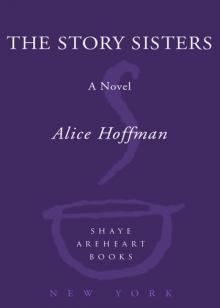 The Story Sisters
The Story Sisters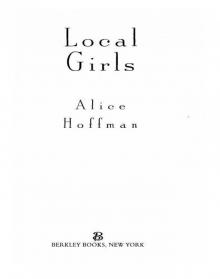 Local Girls
Local Girls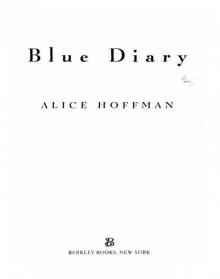 Blue Diary
Blue Diary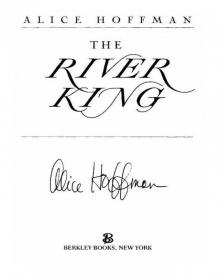 The River King
The River King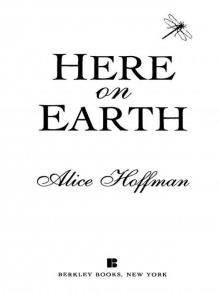 Here on Earth
Here on Earth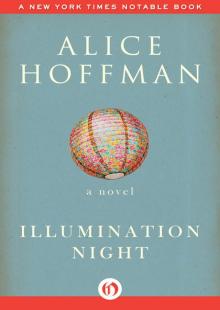 Illumination Night: A Novel
Illumination Night: A Novel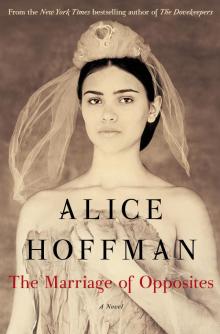 The Marriage of Opposites
The Marriage of Opposites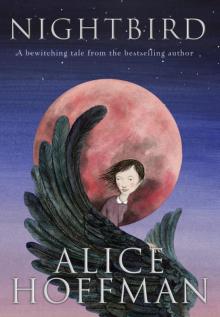 Nightbird
Nightbird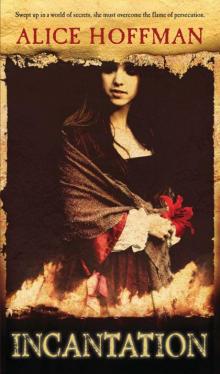 Incantation
Incantation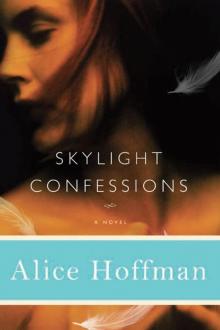 Skylight Confessions
Skylight Confessions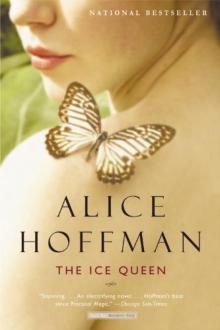 The Ice Queen
The Ice Queen Second Nature
Second Nature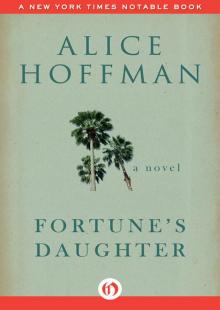 Fortune's Daughter: A Novel
Fortune's Daughter: A Novel Seventh Heaven
Seventh Heaven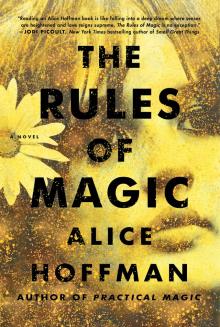 The Rules of Magic
The Rules of Magic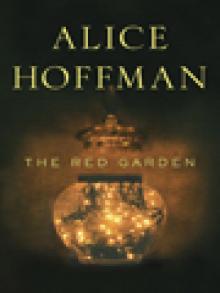 The Red Garden
The Red Garden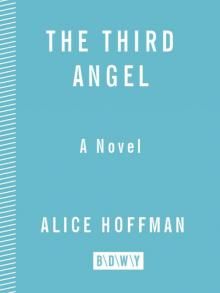 The Third Angel
The Third Angel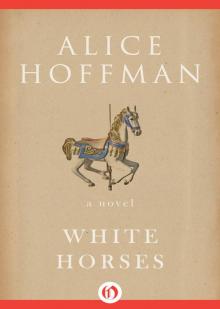 White Horses
White Horses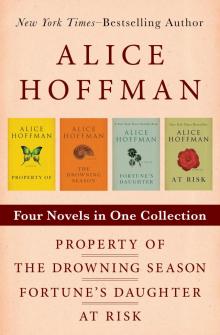 Property of / the Drowning Season / Fortune's Daughter / at Risk
Property of / the Drowning Season / Fortune's Daughter / at Risk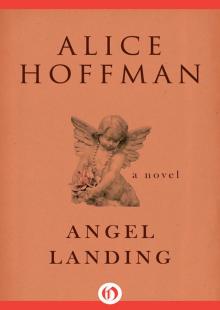 Angel Landing
Angel Landing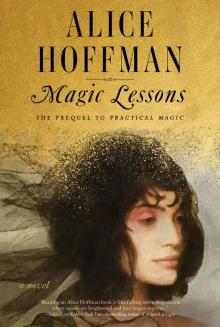 Magic Lessons
Magic Lessons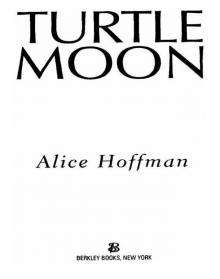 Turtle Moon
Turtle Moon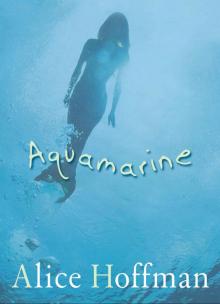 Aquamarine
Aquamarine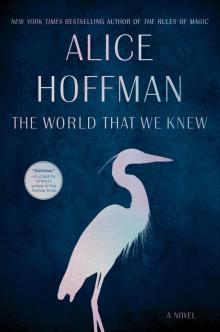 The World That We Knew
The World That We Knew Faithful
Faithful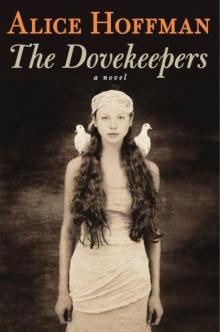 The Dovekeepers
The Dovekeepers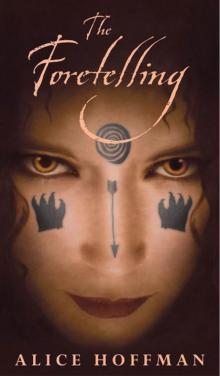 The Foretelling
The Foretelling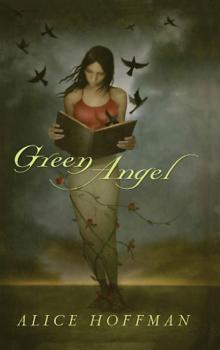 Green Angel
Green Angel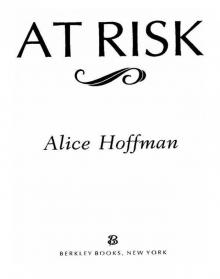 At Risk
At Risk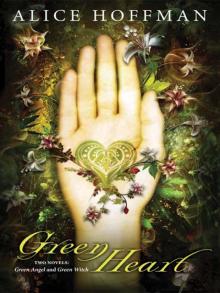 Green Heart
Green Heart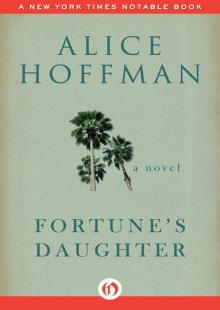 Fortune's Daughter
Fortune's Daughter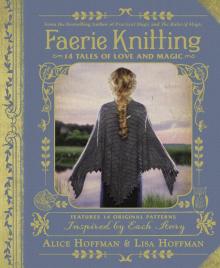 Faerie Knitting
Faerie Knitting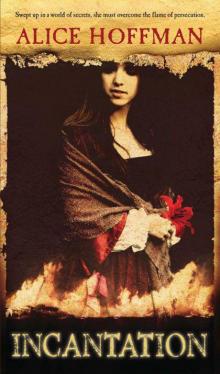 Incantation (v5)
Incantation (v5)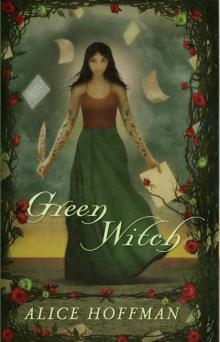 Green Witch
Green Witch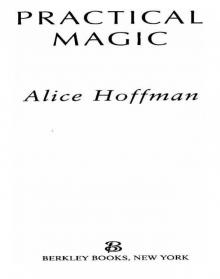 Practical Magic
Practical Magic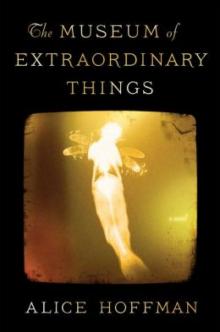 The Museum of Extraordinary Things
The Museum of Extraordinary Things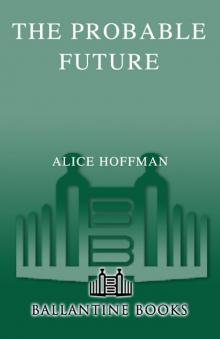 The Probable Future
The Probable Future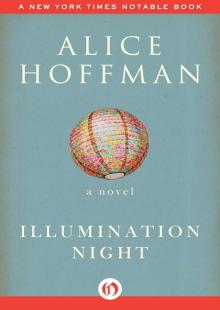 Illumination Night
Illumination Night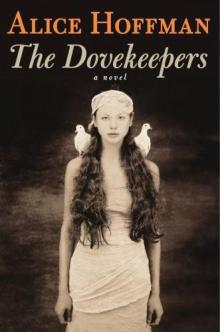 The Dovekeepers: A Novel
The Dovekeepers: A Novel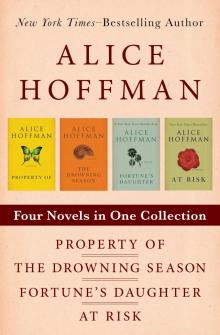 Property Of, the Drowning Season, Fortune's Daughter, and At Risk
Property Of, the Drowning Season, Fortune's Daughter, and At Risk